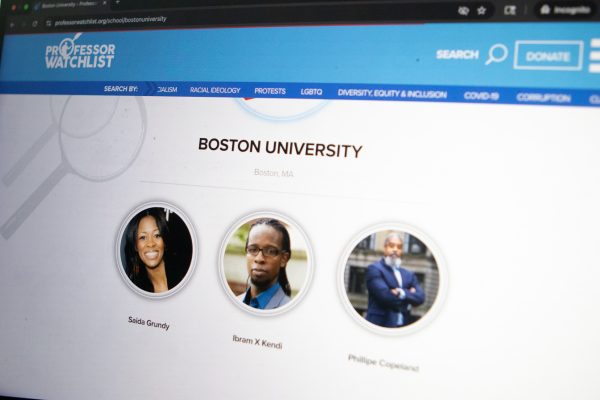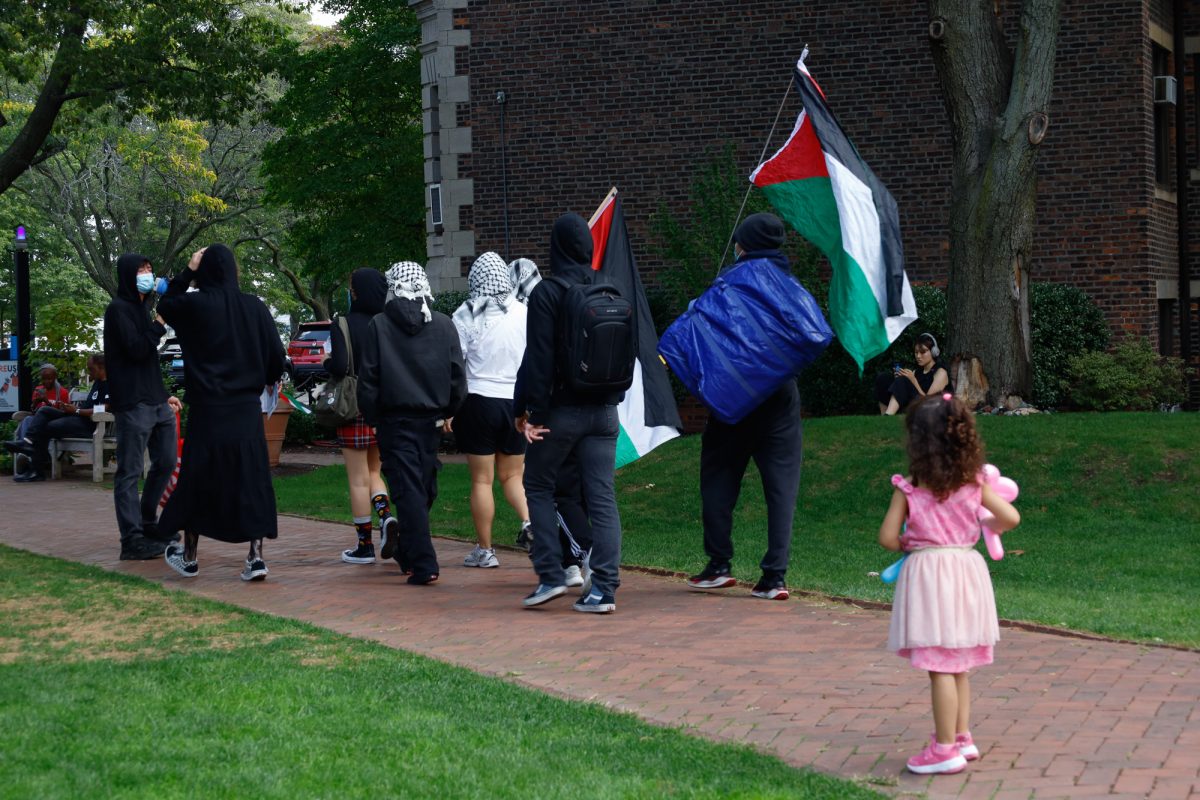As debate surrounding free speech intensifies, the death of conservative political activist Charlie Kirk has renewed attention surrounding a watchlist targeting an array of Boston professors for their political perspectives.

Turning Point USA, a conservative student organization founded by Kirk, formed the “Professor Watchlist” to expose professors who “discriminate against conservative students and advance leftist propaganda in the classroom.”
More than 50 professors in the Boston area have been recognized on the list.
Saida Grundy, Boston University associate professor of sociology and African American and Black diaspora studies, landed on TPUSA’s watchlist in 2015 after labeling white male college students a “problem population” in a social media post.
BU’s president at the time, Robert A. Brown, denounced Grundy’s comments in a letter to the BU community, and Grundy later apologized, according to BU Today.
However, the posts triggered a flood of hate mail. Grundy needed to have a detective shadow her around BU’s campus after the incident, according to Mass Live.
A decade later, Grundy is still on the list.
Reflecting on her past experience and an uptick in scrutiny over free speech in classrooms, she said the list is another strategy to satisfy the conservative right-wing agenda.
“Once you are on those lists, you are always in the toolkit of right-wing propaganda … [The conservative media] will always recycle the same story,” Grundy said. “They don’t care what the messaging is. They just care that it works.”
Grundy said the list has not deterred her from sharing opinions in the classroom. Since she started teaching at BU in 2015, she said she has never felt censored.
“I’ve never been leaned on about what to say,” Grundy said. “My relationship with the administration [and] to trustees has been, to their credit, representative of that academic expression.”
She believes universities could do more to counter federal actions impeding on rights to free speech.
“I think most universities have not been proactive about the safety of their faculty rights,” Grundy said. “I haven’t actually seen a great example of a university that has said, proactively, ‘What this government is doing wrong.’”
James Alan Fox, a criminology professor at Northeastern University, is also on the watchlist.
He was flagged for being “anti-Second Amendment” in 2024 but only learned of the list shortly after Kirk’s death.
“I see it as a badge of honor,” Fox said. “I’m not worried. I haven’t been threatened. I have received no emails … I’ve not been harassed.”
Fox said the lack of harassment is likely because his opinion on gun control is “hardly extreme.”
However, he said professors elsewhere encountered different experiences.
“I see at other universities, talking to other professors around the country who’ve had to change their syllabi, even just change the title of the course to make it not send red flags,” Fox said.
Harvard University Law Professor Emeritus Mark Tushnet was placed on the watchlist after discussing “what legal strategies progressives should pursue” prior to the 2016 Presidential Election in a blog post, he said.
Tushnet said conservative viewers misinterpreted the post, and conservative publications later picked it up.
“I got a flood of hostile emails [and] some nasty phone calls, some of which went to my home number,” Tushnet said. “I didn’t do anything significant about it, except I took my home number off of the publicly available information.”
He received one threat that prompted him to notify Harvard police.
Despite the backlash, Tushnet said he felt his job was secure.
“I was a senior professor. I had a well-established reputation,” he said. “Nothing was going to happen to me as a result of this.”
Other Boston professors on the list declined to comment, citing safety concerns.
“Some of the people on the list who’ve spoken to the press have done so anonymously because they’re afraid,” Fox said.
Gregory Sullivan, president of the New England First Amendment Coalition, called the growing hesitation among professors to speak out a “chilling effect.”
“The biggest challenge is the current federal administration, which has attacked free speech rights against a very broad spectrum of individuals and organizations,” Sullivan said. “We need to be free to criticize our government. That was the point of the adoption of the First Amendment in the first place.”



















































































































